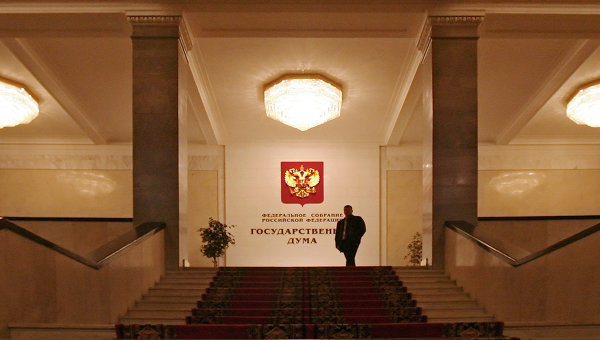MOSCOW, January 22 (RAPSI) – State Duma lawmakers adopted on Wednesday in a third and final reading a bill aimed at toughening the consequences for the crimes of extremism and inciting hatred or enmity.
The bill was drafted in accordance with presidential and governmental instructions and in view of the destructive activity of certain religious organizations in Russia. It was submitted to the lower house of parliament in June 2013.
Its text stipulates tougher criminal punishment for public incitement of extremism (Article 280 of the Criminal Code), with fines reaching 300,000 rubles (approximately $9,000), and increased prison sentences – from three to four years.
It also proposes that the length of compulsory labor for inciting hatred or enmity or for abasing human dignity (Article 282) should be increased from two to four years, with a maximum fine of 500,000 rubles ($15,272).
Tougher consequences are also stipulated for organizing extremist groups and for being a part of secular or religious organizations banned for extremism.
The Prosecutor General's Office reported in July 2013 that extremism cases were on the rise. First Deputy Aleksandr Buksman of the Prosecutor General's Office said that the number of registered crimes connected with extremism increased by 11% in 2012, and by 20% in the first six months of 2013.
The law on combating extremism, which was adopted in July 2002, has been criticized by human rights advocates, who claim that it has often been used to clamp down on dissent rather than to fight real threats to public order. They also say that the definition of extremism is subject to the interpretation of prosecutors and investigators.
On February 1, Russia’s communication watchdog Roskomnadzor will start blocking websites deemed to incite extremism without a prior court ruling. The decision to blacklist the website may be taken by the watchdog at the request of the Prosecutor General or his deputies.



